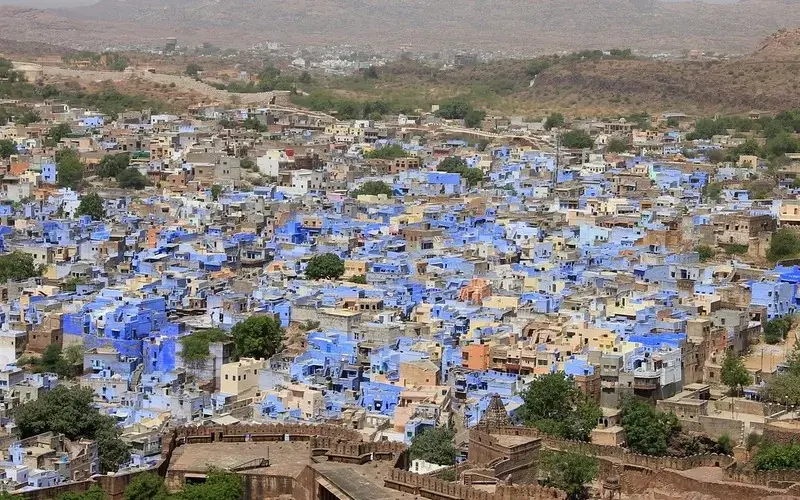


Rajasthan, in northwestern India, holds a storied history dating back to ancient times. It was part of the Indus Valley Civilization and later the Vedic and Mauryan empires. The region saw the rise of powerful Rajput dynasties, each leaving a legacy of opulent palaces and formidable forts, such as Chittorgarh and Mehrangarh. It played a pivotal role in medieval Indian history, facing invasions from Central Asia. In the 17th century, the Mughals gained control, leaving an indelible architectural imprint. After their decline, various princely states arose, which eventually integrated into the Indian Union post-independence in 1947, forming the state of Rajasthan.
Rajasthan, in northwestern India, holds a storied history dating back to ancient times. It was part of the Indus Valley Civilization and later the Vedic and Mauryan empires. The region saw the rise of powerful Rajput dynasties, each leaving a legacy of opulent palaces and formidable forts, such as Chittorgarh and Mehrangarh. It played a pivotal role in medieval Indian history, facing invasions from Central Asia. In the 17th century, the Mughals gained control, leaving an indelible architectural imprint. After their decline, various princely states arose, which eventually integrated into the Indian Union post-independence in 1947, forming the state of Rajasthan.
Geographical Diversity: Rajasthan, located in northwestern India, features a diverse landscape, including the Thar Desert in the west and the Aravalli mountain range in the southeast.
Historic Forts and Palaces: The state is known for its magnificent forts and palaces, such as the Amber Fort, Mehrangarh Fort, and City Palace in Jaipur, showcasing its royal heritage.
Colorful Culture: Rajasthan's vibrant culture is depicted through traditional music, dance, and art forms like Ghoomar, Kathak, and miniature paintings.
Festivals: The state celebrates numerous festivals, with Diwali, Holi, and the Pushkar Camel Fair being among the most notable, attracting tourists from around the world.
Cuisine: Rajasthani cuisine offers a wide array of flavors, featuring dishes like dal baati churma, gatte ki sabzi, and the famous Rajasthani thali.
Wildlife Sanctuaries: Rajasthan is home to several wildlife sanctuaries and national parks, including Ranthambhore National Park, which is renowned for its tiger population.
Historical Significance: Rajasthan's history is marked by the valor of Rajput warriors, Mughal rule, and the influence of various princely states.
Handicrafts: The state is famous for its exquisite handicrafts, including textiles, pottery, jewelry, and colorful Bandhani tie-dye fabric.
Desert Adventures: Visitors can experience the unique desert culture through camel safaris, folk performances, and stays in desert camps.
Temple Architecture: Rajasthan boasts stunning temple architecture, with the Dilwara Temples in Mount Abu and the Brahma Temple in Pushkar being notable examples.